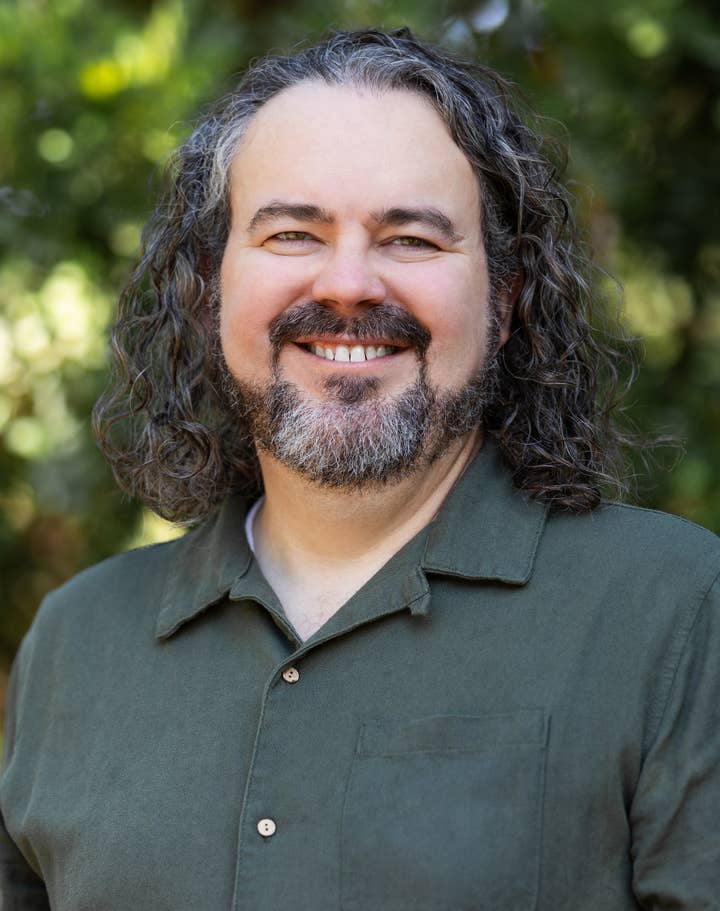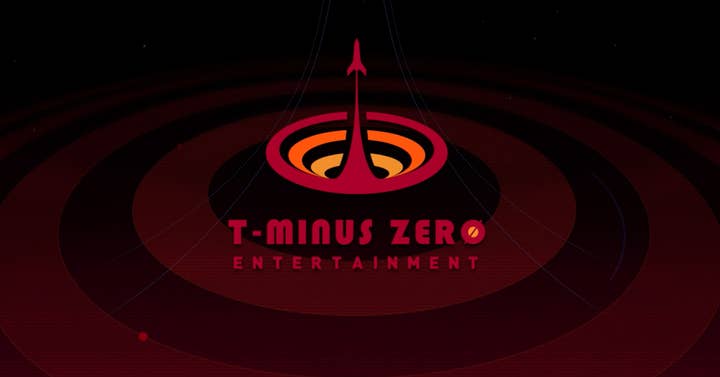A closer look at T-Minus Zero Entertainment, NetEase's latest foray into the West
Co-founders Rich Vogel and Mark Tucker on their new studio with NetEase and making an online game in a challenging landscape
NetEase has been on a business development spree for the past year or so, launching a wealth of new studios and acquiring a handful of them as well – mostly in the West.
Let's take a deep breath and go through them: first US studio Jackalope Games in May 2022 (rebranded to Jackalyptic since), opening of Jar of Sparks in Seattle in July 2022, acquisition of Quantic Dream in August 2022, new Japanese studio GPTrack50 in October 2022, acquisition of Canadian game developer SkyBox Labs in January, creation of remote studio Spliced in February, Barcelona-based Anchor Point Studios in April, launch of Canadian developer Bad Brain Game Studios in May, alongside another new Japanese studio, PinCool.
That's only focusing on a (generous) one-year period and not even counting studios it simply invested in during that time.
The latest in this long list is T-Minus Zero Entertainment, a new Austin-based developer launched this August. Most of NetEase's newly created studios have one thing in common: they're leveraging the expertise of AAA veterans. And T-Minus is no exception as it's headed by co-founder of BioWare Austin and Battlecry Studios (now Bethesda Game Studios Austin) Rich Vogel, of Ultima Online and Star Wars: The Old Republic fame.
"NetEase wants to offer a space for very talented, creative people to build what they want to build," Vogel tells us. "Because they see that as a gap in our industry, and a lot of publishers will just say: 'You'll do [another sequel] and enjoy every minute of it.' Well, some people get tired…
"A lot of that is confining. And that's why all the new games you'll see coming out, the really unique ones, are from indies. So that, to me, is what NetEase is trying to do. It also helps [them] to expand in the West, but NetEase wants to offer this as a platform for creatives to really do what they want to do and give them the room to do it. They don't interfere with us. Because, as they know because they're developers, if you make a great game, everything else will wash."

NetEase's trajectory, a healthy mix across acquisitions, investments and studio creations, is somewhat reminiscent of Embracer's strategy. A strategy that Embracer is now having to severely put the brakes on and rewind, with a restructuring currently ongoing at the company that's been affecting several of its recently acquired studios and leading to layoffs.
When meeting Vogel and game director Mark Tucker, we don't mention names but ask whether they do see that comparison with other companies that have acquired a lot of studios, and whether that's a trajectory that worries them.
"That was one of our biggest fears, I'll be honest with you," Vogel says. "There are companies out there who've done that. But NetEase are careful with who they select – they really do a rigorous interview process before they take someone. But they're not going to go crazy. If someone comes from Blizzard, or someone comes from working on CoD as a developer or whatever, and they say, 'I want to build my own game'... If they come up with a good pitch, NetEase will probably listen. And they should, because again, everyone in this economy is contracting a little bit. This is the perfect time to do this. Because in three years when those people are contracting, they [won't] have anything else new to show. They're not going to be in a great position."
Tucker adds: "We did our homework, too. On the financial side, NetEase is very stable. We don't have to worry about that. They don't have any debt."
Vogel says T-Minus is the fourth studio he's started and there was a lot of discussion about what form it'd take before deciding to go with NetEase.
"We started about a year and a half ago – Mark and I worked together before at [Bethesda] and we started talking about if we started a studio, what kind of game would we want to make? The first thing to do was picture what the core team would look like – it's really important to have a solid core to be successful. Then we went and figured out what we wanted to do."
"There's always risk. This is the entertainment industry. This is a journey. We may be successful, we may not. But we learn a lot along the way"Rich Vogel
The core team is all BioWare and Bethesda veterans, with Vogel and Tucker joined by Jeff Dobson as art director and Scott Malone as VP of operations and production.
"The second biggest thing was funding – we went to VCs, equity, and publishers. We had a couple of deals for equity as well as first-party publishers. I've done a third-party studio, which is an indie studio. It's very difficult to build a game in the indie world today, because you're constantly chasing money, you're constantly in demo mode, and a lot of things happen while you're demoing or trying to get money that are affecting the game so it's not optimal. We really wanted to find a partner that would let us just focus on making the game.
"We went first-party instead of third and chose NetEase. I've known NetEase for a long time – they definitely had the core values that I believe in, and their executives are all developers which I really like. After talking to them about what we want to do in our game, they had the best responses and understood our vision better than any other publishers."
Vogel mentions that equity would have only given them enough money to get to a vertical slice, with the necessity to go through multiple rounds to get the game finished.
"We're doing games-as-a-service and that's not trivial. There's a lot of money that has to go up front, to get the servers online and get everything structured globally before launch and go to market. So that to me is why I didn't want [go through funding rounds]. The process just leads to demo modes and chasing everything. I want to build a great game. Again, there's always risk. This is the entertainment industry. This is a journey. We may be successful, we may not. But we learn a lot along the way."
T-Minus Zero Entertainment is working on an IP that's in the public domain, with Tucker saying that the team is making it their own, so it's going to feel "like a new one." We couldn't tempt the duo to tell us more, but Vogel says it's a "globally recognised" IP, and that "when people see it, they know it."
"We don't want to talk much about the IP now, because when you develop a game you're going to make decisions, forks in the road that may change the way the game is going to shape up," Vogel explains. "We don't want to talk about that in case players get expectations that the game doesn't quite deliver.

"I learned a long time ago not to do that because then players make up their own minds about what they want the game to be. But it's going to be a third-person action game, and it's going to be games-as-a-service. We love building online games – every studio I started built online games – because, in my opinion, online games are where people can form lasting relationships."
T-Minus' title will be for both console and PC, and built in Unreal Engine 5.
It's been a bit of a tough time for online games recently, with quite a few of them closing down in short succession, including Knockout City, CrossfireX, Blaseball, Lemnis Gate, and more. We ask Vogel and Tucker how they're approaching that challenge.
"Every studio I've made has shipped a game," Vogel says. "One of the reasons they ship is because we really believe in making sure we build something that players want to play. If I played on day one would I come back and play again? If I'm 14 days out, would I continue playing the game again? Would I make it my hobby, would I come back for an update?
"If you don't have a really good Day One, Day Seven or even Day 14 – which is what a lot of these online games just didn't have – you get a lot of people to try, but they just don't come back. And that is where you see the people that have failed happening. In order to avoid that, we'll go to early access, we'll build the game with the community and get their input – we're not going to try and guess.
"But the issue is, when people build games like this from the start, they go too wide, too quickly. They don't really get to the fun part of the game. This is why Day One and Day Seven don't happen, because they just skip over it real fast because they want to get it done, they want to get it out the door. And really, that's the soul of the game, that moment to moment. If you don't have that, you're not going to be successful. So that's why we're going to stay small until we have sold a game, and then we'll start expanding the studio."
Tucker says the studio wants to be very "methodical" about its online title, adding that once the game is out there, "it becomes a collaboration between developer and the player in trying to meet their expectations."
"You have to pay attention to what they're doing in your game through analytics data because, sometimes, what they say isn't what they're doing"Mark Tucker
"You have to really listen to them, and you have to pay attention to what they're doing in your game through analytics data because, sometimes, what they say isn't what they're doing," he continues. "We're going to spend a lot of time focusing on that and rolling it out slowly in early access to give us time as developers to absorb the feedback, make the changes that need to be made before we go to a broader audience."
He adds: "For the game, we want to get to the fun fast. While we have an MMO background and history, we're focused on more of a session-based approach because of the entertainment options that modern audiences have access to. I don't think people really want to sit there and grind thousands of hours to get to the next level. We want them to have fun in a 20 to 30 minute session – get in and get out. If you're really having fun, play more sessions. That's the direction we're heading towards."
Vogel says that replayability and emergent behaviour is really important to the team's vision: "Let players build their own stories and give them the tools to do it to make every session different."
T-Minus currently employs around ten people, and is aiming for 30+ as it progresses through development. The studio is remote-first but the core team is anchored in Austin.
"I like Austin, because of the culture," Vogel says. "It has a large party music community around it, as well as film and games. And we want to make sure it stays that way.
"So that's why I started to use Austin – this is my fourth studio there because I want to keep that culture and presence and bring people into Austin. I think the key is we'll go where the talent is. We want to try to work within a hub and spoke model where we look at areas that are central and try to build around those by doing meetups so people can get together and do WeWorks and culturalize themselves.
"Every quarter we will have meetups together – that to me is something you can't do online, you just can't capture that. There's people I met and hired during the pandemic that when I met them in person, I said: 'You're six foot four? Holy shit, I thought you were five foot ten'. That's the stuff you're never going to get online," he laughs.
Sign up for the GI Daily here to get the biggest news straight to your inbox

